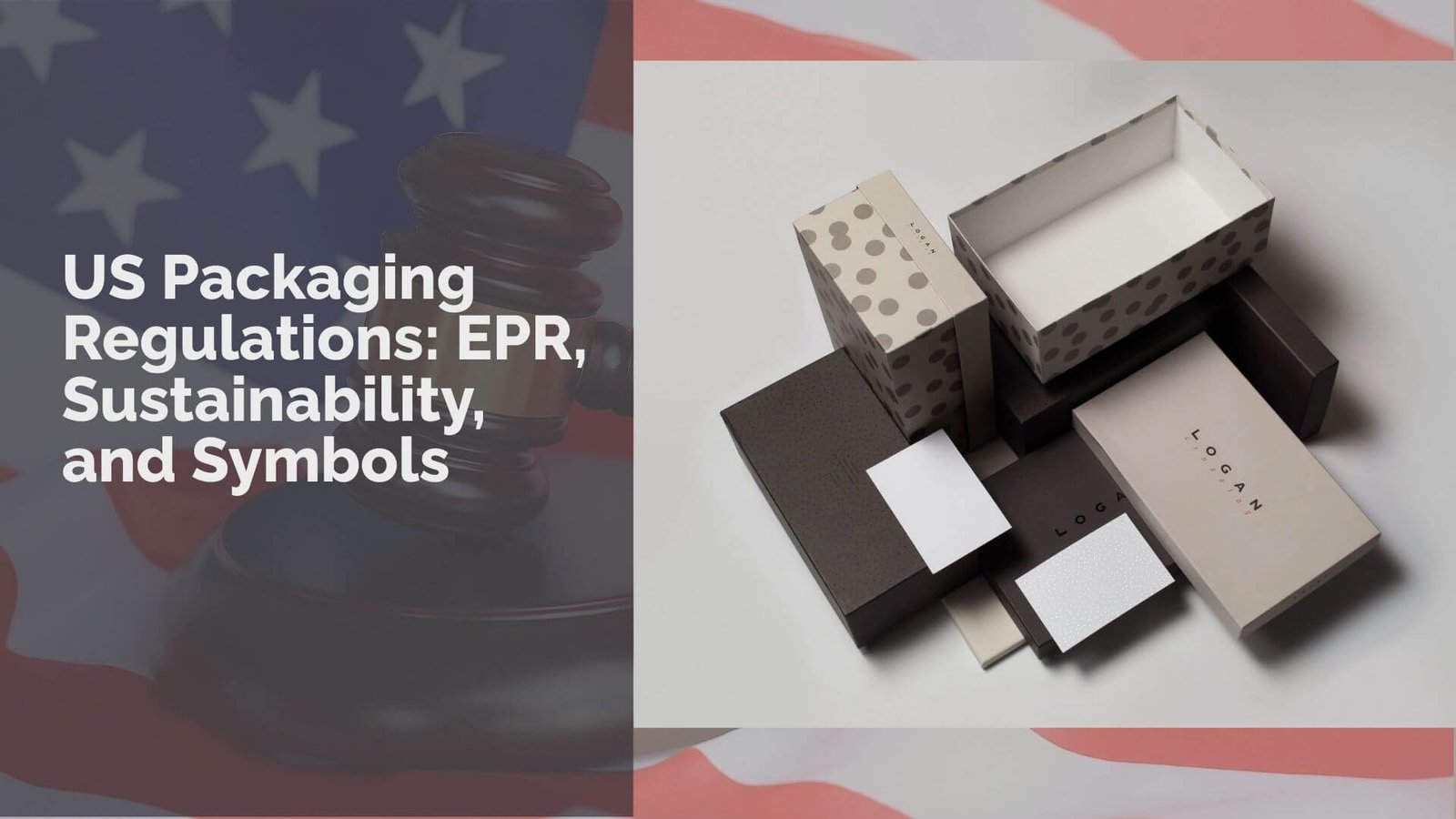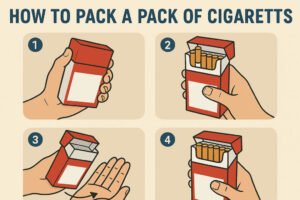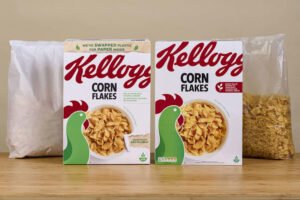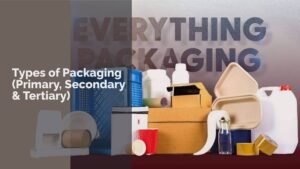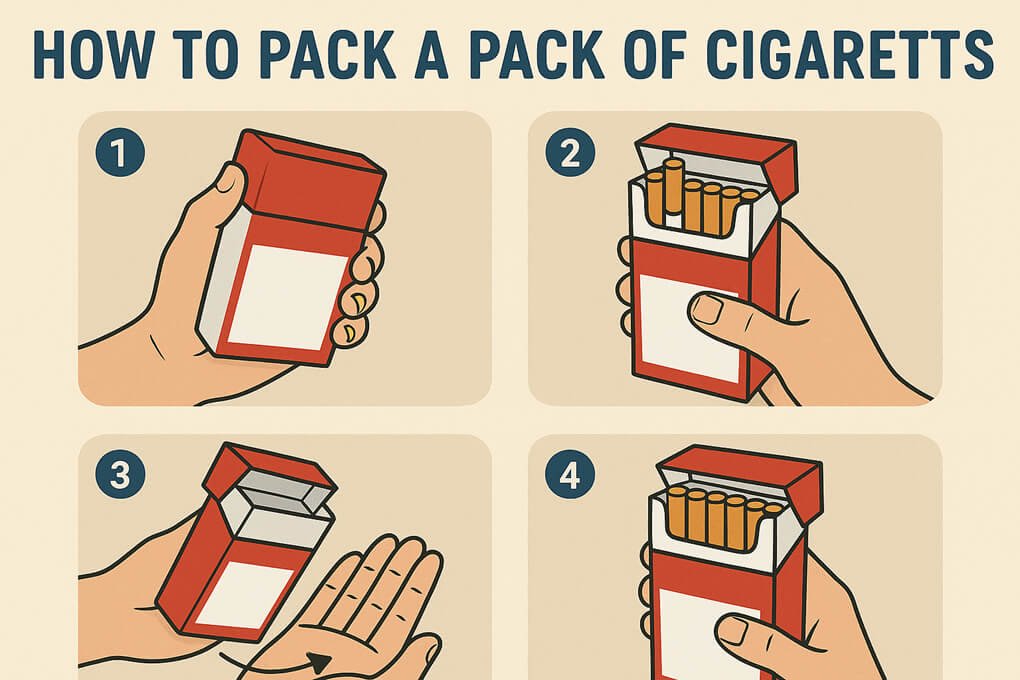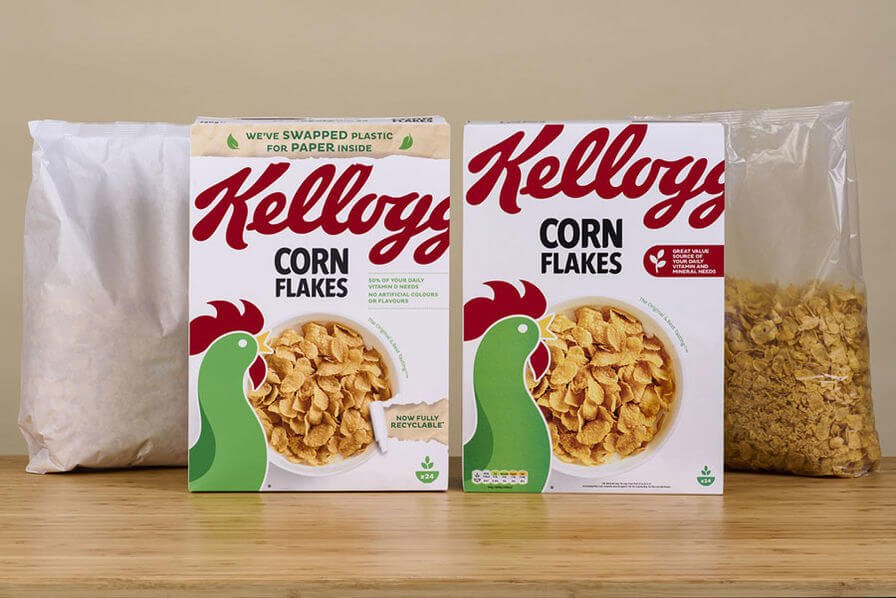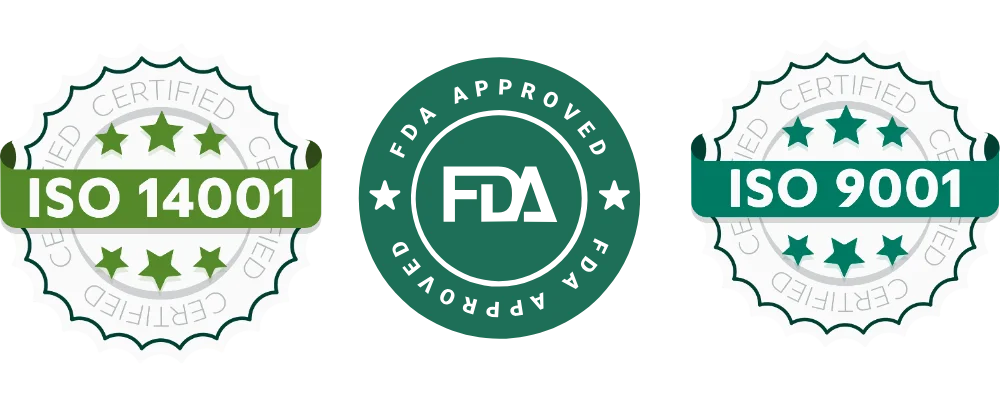Understanding US packaging regulations is essential for businesses to ensure compliance and avoid penalties. These regulations include the Fair Packaging and Labeling Act, FDA rules for food packaging, and various state laws that focus on sustainability and recycling.
In this blog, we will explore key packaging regulations in the US, including the Uniform Packaging and Labeling Regulation and Extended Producer Responsibility (EPR) laws. We’ll also discuss important topics like FPLA requirements, recycled content regulations, and how these laws affect your packaging choices. Stay informed to keep your products compliant and eco-friendly!
What are the United States Packaging Regulations?
General US Packaging Regulations
In the United States, packaging regulations are essential for ensuring that products are safe and accurately represented to consumers.
These regulations help businesses comply with laws that protect public health and safety. Key regulations include the Fair Packaging and Labeling Act (FPLA), the Uniform Packaging and Labeling Regulation, the Poison Prevention Packaging Act, and FDA guidelines for food, drug, and cosmetic packaging.
Understanding these laws is essential for any company involved in packaging.
Fair Packaging and Labeling Act
The Fair Packaging and Labeling Act (FPLA) was created to give consumers clear information about the products they buy. It requires that labels on packaging show important details like the product’s identity, who made it, and how much is inside.
This helps people compare prices easily. The FPLA applies mainly to food, drugs, and cosmetics but does not cover items like tools or certain other products.
The Food and Drug Administration (FDA) and the Federal Trade Commission (FTC) enforce these rules. By following the FPLA, companies can avoid misleading customers and help them make better choices.
Uniform Packaging and Labeling Regulation and NIST Handbook 130
The Uniform Packaging and Labeling Regulation (UPLR) works alongside the FPLA to ensure that products are labeled consistently across states.
This regulation requires that labels provide clear information about what is inside the package. According to NIST Handbook 130, labels must include details such as the name of the product, the manufacturer’s information, and the net quantity of contents.
Even though people can find product information online, accurate labeling remains vital for consumers in stores. It allows them to make informed decisions quickly while shopping.
Poison Prevention Packaging Act
The Poison Prevention Packaging Act (PPPA) aims to keep children safe from dangerous household products.
This law requires that certain items, like medications and cleaning supplies, be packaged in a way that children under five cannot open them. This means using special caps or designs that are hard for small hands to manipulate.
The PPPA covers various products, including drugs, cosmetics, and hazardous substances. By following these rules, manufacturers help prevent accidental poisonings among young children.
FDA Regulations on the Packaging of Food, Drug, and Cosmetic Products
The FDA plays a significant role in regulating how food, drugs, and cosmetics are packaged. These regulations ensure that packaging is safe for consumers and does not harm the products inside.
For food packaging, materials must be approved as safe for contact with food. Labels must include important information such as nutrition facts, expiration dates, allergens, and handling instructions. For drugs and cosmetics, packaging must protect against contamination from light, moisture, or air. Labels must also provide clear instructions on how to use these products safely.
Additionally, there are specific guidelines regarding microwave-safe packaging materials. Although the FDA has not issued specific regulations for microwave use, any food contact materials must meet good manufacturing practices (GMP).
This means they should be suitable for their intended use without leaching harmful chemicals into food when heated. Manufacturers often seek FDA clearance through a Food Contact Notification (FCN) process to ensure compliance with safety standards.
By adhering to FDA regulations, companies can build trust with their customers while promoting safety in their products.
Moreover, packaging materials must not alter the taste or smell of food. This is crucial because consumers expect their food to remain unchanged after being packaged. Therefore, understanding these regulations helps businesses create effective packaging solutions that meet legal requirements while ensuring consumer safety.
US Sustainable Packaging Regulations
Sustainability regulations in the United States focus on reducing environmental impact through responsible packaging practices. These regulations are enforced at both federal and state levels, aiming to promote recycling, reduce waste, and ensure safe packaging materials.
Key areas of these regulations include bans on harmful materials, requirements for recycled content, and labeling standards that help consumers make informed choices. As more states adopt strict sustainability measures, businesses must stay informed to comply with these evolving laws. Understanding these regulations is crucial not only for compliance but also for fostering a sustainable future.
Bans and Restrictions
Many states have enacted bans and restrictions on certain packaging materials due to their negative environmental impact.
One of the most common targets is polystyrene, which is often used in food containers and utensils. Polystyrene is not easily recyclable and can contribute significantly to pollution in oceans and landfills.
For example, California has banned polystyrene food containers in many areas, leading other states to consider similar measures. Additionally, some cities have restricted the use of plastic straws and bags to reduce plastic waste.
These bans encourage businesses to seek eco-friendly alternatives, such as compostable or biodegradable materials, which help protect the environment. By transitioning away from harmful materials, states aim to reduce litter and promote a cleaner ecosystem.
Recycled Content Regulations
Recycled content regulations specify the minimum percentage of recycled materials that must be included in certain products, including packaging. These laws are enacted to encourage recycling by obliging manufacturers to use recyclable or reusable containers or ensure that they contain a specific minimum amount of recycled materials.
For instance, California requires that plastic bottles contain at least 25% recycled content by 2025. This not only promotes recycling but also helps create a market for recycled materials, making it more economically viable for companies to invest in sustainable practices.
By mandating recycled content, these regulations help close the loop in the recycling process and reduce the demand for virgin materials.
Resin Identification Code
The Resin Identification Code was developed by the Society of the Plastics Industry to assist in the recycling of plastics. This system assigns a number from 1 to 7 to different types of plastic resins, which helps consumers identify how to recycle them properly.
Rigid plastic containers are required by law to include this code in many states, allowing recycling facilities to sort plastics more efficiently. For example, plastics labeled with a “1” (PETE) are widely accepted in recycling programs, while those labeled with “3” (PVC) may not be as easily recyclable.
Educating consumers about these codes encourages better recycling practices and helps reduce contamination in recycling streams.
Tax Credits and Other Incentives
To promote recycling and sustainability, many states offer tax credits and incentives for businesses that adopt eco-friendly practices.
These incentives can help offset costs associated with using recycled materials or implementing sustainable packaging solutions. For instance, some states provide tax breaks for companies that invest in equipment designed to reduce waste or improve recycling rates.
Additionally, local jurisdictions may offer grants for businesses that develop innovative packaging solutions that minimize environmental impact. By providing financial incentives, states encourage businesses to participate in sustainability efforts while also benefiting their bottom line.
California Plastic Waste and Labeling Bills
California has taken significant steps to address plastic waste through various laws aimed at reducing single-use plastics.
The Plastic Pollution Prevention and Packaging Producer Responsibility Act requires that by 2032 all packaging must be recyclable or compostable, with a goal of achieving a 65% recycling rate for single-use plastics. These laws hold producers accountable for their packaging choices and encourage them to find sustainable alternatives.
Additionally, California’s labeling laws ensure that consumers are well-informed about which materials can be recycled or composted. This transparency helps consumers make better choices while shopping and raises awareness about the importance of reducing plastic waste.
California Safer Food Packaging and Cookware Act of 2021
The California Safer Food Packaging and Cookware Act prohibits the use of harmful substances like PFAS (per- and polyfluoroalkyl substances) in food packaging materials.
This regulation aims to protect consumers from toxic chemicals that can leach into food products. It also requires manufacturers to disclose any potentially harmful substances used in cookware packaging.
By promoting safer packaging materials, this act ensures that consumers have access to healthy food options without harmful chemicals contaminating their meals. The law reflects a growing trend toward transparency in food safety and encourages manufacturers to prioritize consumer health.
Maine EPR Law
Maine’s Extended Producer Responsibility (EPR) law places the responsibility of managing packaging waste on producers rather than taxpayers.
This law encourages manufacturers to design products with their end-of-life disposal in mind, promoting sustainability from the start. Under this law, producers must contribute financially to a stewardship program that handles recycling and waste management for their products.
This approach not only reduces costs for consumers but also motivates manufacturers to create more sustainable packaging solutions that minimize waste generation during production and after consumer use.
Heavy Metal Restrictions
Heavy metal restrictions are enforced in several states to limit toxic substances like lead, mercury, and cadmium in packaging materials. These regulations aim to protect public health by ensuring that packaging does not contain harmful levels of these metals.
Manufacturers who violate these laws can face hefty fines for each product found with prohibited substances.
For example, California’s Safe Drinking Water and Toxic Enforcement Act (Proposition 65) is one of the most stringent state laws concerning toxic substances in consumer products and packaging. By enforcing heavy metal restrictions, states work towards safer consumer products and a healthier environment.
Environmental Advertising and Labeling
The Federal Trade Commission (FTC) regulates environmental advertising claims made by companies regarding their products’ sustainability features through its “Guides for the Use of Environmental Marketing Claims.”
These guidelines help prevent misleading claims about recyclability or biodegradability unless they are genuinely supported by facts.
For example, if a company claims its packaging is recyclable, there must be accessible recycling programs available for most consumers who purchase the product.
This regulation ensures that businesses provide accurate information about their environmental practices while helping consumers make informed choices when shopping for sustainable products.
Individual states have adopted similar guidelines based on FTC standards, reinforcing the importance of truthful marketing in promoting environmentally friendly practices.
US Packaging Symbols and Labeling Regulations
In the United States, packaging symbols and labeling regulations play a vital role in helping consumers understand product information quickly and effectively. These symbols communicate essential details about a product’s quality, handling instructions, recyclability, and safety.
For instance, symbols indicating whether a product is fragile or requires special care during transport help ensure that items are handled properly.
Additionally, symbols related to sustainability, such as the recycling symbol or compostable labels, inform consumers about the environmental impact of their purchases.
Using standardized symbols is crucial for both manufacturers and consumers. While many symbols are voluntary, adopting internationally recognized graphics can enhance safety during shipping and handling.
The Mobius loop indicates that packaging is recyclable, while a seedling symbol signifies that an item is biodegradable. These symbols not only promote responsible consumer behavior but also align with growing public interest in sustainability.
Moreover, the Food and Drug Administration (FDA) allows the use of symbols in medical device labeling without accompanying text, streamlining communication for healthcare products. This flexibility supports clearer labeling while maintaining compliance with safety standards.
As businesses increasingly prioritize eco-friendly practices, understanding and utilizing these symbols becomes essential for effective marketing and consumer trust. For more detailed information about specific symbols and their meanings, numerous online resources are available to guide businesses in their labeling efforts.
Packaging Extended Producer Responsibility Laws In The USA
Extended Producer Responsibility (EPR) laws in the United States are becoming increasingly important as states aim to address the growing issue of packaging waste. These laws hold producers accountable for the entire lifecycle of their products, particularly focusing on packaging materials.
As more states adopt EPR legislation, companies are pressured to innovate and implement sustainable packaging solutions. By 2024, seven states, including California, Maine, and Minnesota, have enacted EPR laws targeting packaging waste.
EPR packaging laws require producers to manage the collection, recycling, and disposal of their packaging materials. This means that businesses must pay fees based on the type and volume of packaging they introduce into the market.
The higher the volume and the less environmentally friendly the materials, the greater the fees imposed. These funds support recycling infrastructure and public education efforts aimed at reducing waste.
For instance, California’s Plastic Pollution Prevention and Packaging Producer Responsibility Act (SB 54) mandates that by 2032, all packaging must be recyclable or compostable.
Maine was the first state to implement EPR for packaging in 2021 with its LD 1541 law, which requires producers to join a Producer Responsibility Organization (PRO) to manage waste effectively.
Other states like Minnesota have followed suit with similar programs aimed at reducing packaging waste and increasing recycling rates. As these laws evolve, they create financial incentives for producers to adopt eco-friendly practices while alleviating the economic burden of waste management from local governments.
Overall, EPR laws represent a significant shift in how packaging is managed in the U.S., promoting sustainability and encouraging businesses to take responsibility for their environmental impact. As consumers become more aware of sustainability issues, compliance with these regulations will not only be a legal obligation but also a competitive advantage for companies committed to reducing their ecological footprint.
Which US States Have EPR Laws?
As of 2024, several U.S. states have enacted Extended Producer Responsibility (EPR) laws aimed at managing packaging waste. These laws require producers to take responsibility for the entire lifecycle of their packaging, from production to disposal.
The states with active EPR laws include California, Colorado, Maine, Oregon, New Jersey, Minnesota, and Washington. Each state has tailored its legislation to address local environmental concerns and promote recycling efforts.
Maine was the first state to implement EPR for packaging with the passage of LD 1541 in July 2021. This law shifts the financial burden of packaging waste management from municipalities to producers, encouraging companies to reduce waste and improve sustainability.
Following Maine, Oregon introduced the Plastic Pollution and Recycling Modernization Act (SB 582) in August 2021, which focuses on enhancing recycling systems and reducing plastic pollution.
In June 2022, California passed the Plastic Pollution Prevention and Packaging Producer Responsibility Act (SB 54), mandating that by 2032 all packaging must be recyclable or compostable. Colorado also enacted its Producer Responsibility Program for Statewide Recycling Act (HB 22-1355) in June 2022, which aims to create a comprehensive recycling system funded by producers.
New Jersey’s Recycled Content Law (P.L. 2021, c. 391) requires products to contain a minimum percentage of recycled materials and prohibits polystyrene loose-fill packaging. Washington’s Post Consumer Recycled Content Law (70A.245) mandates that certain plastic products include a minimum amount of recycled content and requires producers to register with the state.
Most recently, Minnesota passed the Packaging Waste and Cost Reduction Act (HF3911) in May 2024, which requires producers to manage the lifecycle of their packaging materials and participate in a Producer Responsibility Organization (PRO). This growing trend of EPR laws across various states highlights the increasing recognition of the need for sustainable packaging practices.
California – Plastic Pollution Prevention and Packaging Producer Responsibility Act (SB 54)
California’s Plastic Pollution Prevention and Packaging Producer Responsibility Act (SB 54) aims to significantly reduce plastic waste in the state. By 2032, this law mandates that all packaging must be recyclable or compostable.
Additionally, it requires a minimum recycling rate of 65% for single-use plastics and a reduction of plastic packaging by 25%. The legislation shifts responsibility from consumers to producers by requiring them to establish a Producer Responsibility Organization (PRO) that will manage recycling programs statewide.
This proactive approach not only helps California meet its climate goals but also encourages companies to innovate in sustainable packaging solutions.
Colorado – Producer Responsibility Program for Statewide Recycling Act (HB 22-1355)
Colorado’s Producer Responsibility Program for Statewide Recycling Act (HB 22-1355) was signed into law on June 2, 2022.
This act establishes a statewide recycling system funded by producers of packaging materials. The goal is to improve recycling rates and reduce plastic waste entering landfills.
Producers are required to contribute financially to the recycling system based on the amount of packaging they place on the market. This funding covers operational costs, education programs, and infrastructure improvements needed for effective recycling throughout Colorado.
Maine – An Act to Support and Improve Municipal Recycling Programs to Save Taxpayer Money (LD 1541)
Maine’s LD 1541 was groundbreaking as it was the first EPR law for packaging in the U.S., enacted in July 2021.
This legislation transfers the responsibility of managing packaging waste from municipalities to producers. It covers various types of packaging materials such as plastics and cardboard.
The aim is to reduce landfill waste while increasing recycling rates across the state. Producers must join a stewardship organization that oversees waste management processes and ensures compliance with recycling goals.
Oregon – Plastic Pollution and Recycling Modernization Act (SB 582)
Oregon’s Plastic Pollution and Recycling Modernization Act (SB 582) was implemented in August 2021 as a response to outdated recycling systems.
This law requires producers to join a stewardship organization responsible for managing recycling efforts statewide.
The act focuses on improving access to recycling services while preventing plastic pollution through effective management practices. It aims to incentivize innovation by imposing higher fees on non-recyclable products.
New Jersey – Recycled Content Law (P.L. 2021, c. 391)
New Jersey’s Recycled Content Law (P.L. 2021, c. 391) establishes requirements for post-consumer recycled content in various products including plastic containers and carryout bags.
This law is designed to stimulate local recycling markets by ensuring that manufacturers meet minimum recycled content standards before selling their products within New Jersey. Additionally, it prohibits certain types of non-recyclable materials like polystyrene loose-fill packaging.
Washington – Post Consumer Recycled Content Law (70A.245)
Washington’s Post Consumer Recycled Content Law (70A.245) requires that certain plastic products contain a specified amount of recycled content starting January 1st, 2023.
Producers must register with the state and pay annual fees based on their product sales volume. This law aims to reduce new plastic production while promoting the use of recycled materials within the state’s economy.
Minnesota – The Packaging Waste and Cost Reduction Act (HF3911)
On May 22nd, 2024, Minnesota passed the Packaging Waste and Cost Reduction Act (HF3911) which mandates that producers manage their packaging materials throughout their lifecycle.
This act covers all types of packaging but exempts certain categories like medical supplies and hazardous materials. Producers must register with a Producer Responsibility Organization that will oversee compliance with recycling targets and promote eco-friendly designs in product packaging.
The growing number of EPR laws across these states reflects an increasing commitment to sustainability and responsible waste management practices in the U.S., encouraging businesses to adopt greener packaging solutions while reducing environmental impact.
Packaging Company That Fullfills All US Packaging Regulations
When searching for a packaging company that fulfills all US packaging regulations, 7 Custom Boxes stands out as a reliable choice. This company is dedicated to ensuring compliance with key regulations such as the Fair Packaging and Labeling Act (FPLA) and the guidelines set forth by the Food and Drug Administration (FDA).
They prioritize safety and transparency in their packaging solutions, which is crucial for businesses in the food, drug, and cosmetic industries.
7 Custom Boxes is well-versed in the complexities of US packaging regulations, including Extended Producer Responsibility (EPR) laws that are increasingly being adopted by states like California, Maine, and Colorado.
These laws require producers to take responsibility for the lifecycle of their packaging, making it essential to partner with a company that understands these requirements.
Additionally, 7 Custom Boxes offers eco-friendly packaging options that align with sustainability goals, helping businesses reduce their environmental impact.
Their commitment to quality ensures that all products meet labeling requirements and safety standards, giving you peace of mind. By choosing 7 Custom Boxes, you can be confident that your packaging will not only comply with regulations but also enhance your brand’s reputation for responsibility and care.
Conclusion
Understanding US packaging regulations is important for businesses to stay compliant and responsible. Laws like the Fair Packaging and Labeling Act and Extended Producer Responsibility (EPR) laws help ensure that packaging is safe and eco-friendly.
Companies must pay attention to recycled content regulations and labeling requirements to protect consumers and the environment.
By following these rules, businesses can build trust with their customers and contribute to a cleaner planet. Choosing a packaging company like 7 Custom Boxes can help you meet all US packaging regulations while also promoting sustainability in your products.
Frequently Asked Questions About US Packaging Regulations
What are the packaging requirements?
Packaging requirements include rules about labeling, safety, and materials used. These rules ensure that products are safe and provide clear information to consumers about what they are buying.
What is the Packaging Act USA?
The Packaging Act in the USA includes laws like the Fair Packaging and Labeling Act (FPLA), which requires products to be labeled clearly with their contents, manufacturer, and quantity.

